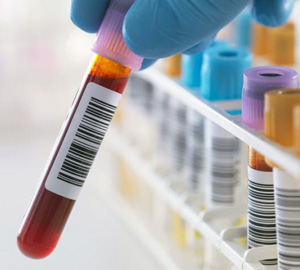Rhesus Negative Factor
Rhesus Negative
 People have different blood types which split into four main groups: A, B, AB, and O, each of these groups can be Rhesus negative or Rhesus positive. So your blood group fits into any eight of these categories. The group which a person fits will be identified by the number of antigens and antibodies found in the blood.
People have different blood types which split into four main groups: A, B, AB, and O, each of these groups can be Rhesus negative or Rhesus positive. So your blood group fits into any eight of these categories. The group which a person fits will be identified by the number of antigens and antibodies found in the blood.
What are Antigens?
What is the Rhesus Factor?
Rhesus Negative & Pregnancy
Is my baby at risk if i am Rhesus negative?
What if mine and my unborn baby's bloodlines cross?
What can be done to reduce the risk of complications in Rhesus negative mothers?
What is Anti-D immunoglobulin?
Complications with Anti-D
Antigens are protein molecules found on the surface of red blood cells antibodies are your bodies natural protection against any foreign antigens.
Back to top
More than 85% of people are rhesus positive this means they contain the antigens in their blood, they are said to have the rhesus factor. For example if a person is B+ their blood contains the antigens and is said to have the rhesus factor. If a person is B- they do not have the rhesus factor and there blood does not contain antigens, they fall into the category of rhesus negative.
The Rh factor commonly known as the Rhesus factor name is derived from experiments which took place in 1937. Scientist discovered when rabbits are injected with Rhesus monkeys red blood cells it caused the subject to produced antigen. These antigens were same as the ones found in the red blood cells of most humans.
Back to top
A persons Rhesus factor is crucial when a woman becomes pregnant, especially when a woman is carrying a child with the Rhesus positive blood. If some of the unborn babies blood gets into the mother's blood stream, your immune system can respond as if the baby's blood is a foreign invader. Your body can then produce antibodies against it and react with the D antigen in the child blood. This is known as sensitization.
Back to top
Rhesus incompatibility is not usually a cause for serious concern during a woman first pregnancy, the foetus blood does not usually cross with the expectant woman. There are some times a slight risk if there are any abnormalities during the pregnancy.
The reason it is more of a concern in later pregnancy's is because sometimes during giving birth the blood can intermingle, this can cause the woman body to recognise this as a foreign invader and start to produce antibodies against RH proteins.
Back to top
If a woman is not sensitised they run the risk of their child having Rhesus disease, symptoms of this can be anemia or jaundice. Newborn babies born with this will need to be admitted to a neonatal unit, phototherapy (light) and or blood transfusions may need to be carried out. If Rhesus disease is left untreated it can result in learning difficulties, blindness and deafness. In extreme cases, it can lead to still birth after a child has died in the womb.
Back to top
Rhesus disease can be avoided when sensitization is carried out to prevent the body from making antibodies against the blood. To avoid sensitization, rhesus negative woman an injection of anti-D imunogloben can prevent this from occurring, and the rhesus disease will not develop.
Back to top
What is Anti-D immunoglobulin?
The anti-D injection is administered to a woman who is rhesus negative, it neutralises Rhesus positive antigens that could have entered the woman's bloodstream. In the UK, anti-D will be offered to the woman who are RH negative in their third trimester. In the third trimester of pregnancy, there is more of a chance of blood from the foetus crossing with that of the mothers.
After giving birth a sample of blood should be taken from the baby umbilical cord, if during pregnancy a woman has not been sensitised. If the child has rhesus positive blood an injection of Anti-D given to the mother will protect future pregnancies.
Back to top
Complications with Anti-D
As with all blood donated there is always an exceedingly small risk of infection that could transfer between blood. Some woman can develop a short term allergic reaction to anti-D this can result in rash and/or flu like symptoms. Research has shown the benefits of Anti-D far out way the risks for the woman who are rhesus negative.
Back to top
|